Project No. 101183391
Program: EU4Health Programme (EU4H) Topic: EU4H-2023-JA-3-IBA-03
Project budget: EUR 5 999 999,93 EU Grant 80% for project - EUR 4 799 999.95, VUH Santaros klinikos received EUR100 045.86
Responsible Department at VUH Santaraos Klinikos:
Project Manager: Prof. Edvardas.Danila,
Project Purpose - to mitigate the impact of chronic respiratory diseases (CRDs) within Europe. It uniquely combines innovative digital health technologies, improved access to diagnostic tools, and enhanced health literacy efforts to address and manage CRDs effectively. This initiative is grounded in a collaborative approach, engaging various healthcare stakeholders to promote preventive strategies and reduce the overall burden and mortality rates associated with these diseases. By focusing on the integration of environmental and lifestyle factors, the project aims to offer a holistic solution to CRDs. Additionally, the JARED project prioritizes inclusivity, ensuring that vulnerable populations receive significant attention throughout its implementation. The JARED project is poised to deliver significant impacts across the short, medium, and long term. In the immediate future, it will establish robust evaluation frameworks, enhance CRD management knowledge through educational materials, and initiate key stakeholder engagements. This comprehensive strategy targets not only the immediate alleviation of CRD burdens but also the systemic transformation of healthcare approaches and policy frameworks for chronic respiratory diseases.
Santaros klinikos participates in Work Package 6 (WP 6) following tasks - T6.3 Interstitial lung diseases (modifiable risk factors) T.6.4 T6.4 Early detection, diagnosis and treatment of chronic respiratory diseases
Project Co-ordinator: ORSZAGOS KORANYI PULMONOLOGIAI INTEZET (Hungary)
Project Partners:
BORSOD-ABAUJ-ZEMPLEN VARMEGYEI KOZPONTI KORHAZ ES EGYETEMI OKTATO KORHAZ (Hungary)
NEMZETI NEPEGESZSEGUGYI ES GYOGYSZERESZETI KOZPONT (Hungary)
1ST YGEIONOMIKI PERIFEREIA DYPE ATTIKIS (Greece)
GENIKO NOSOKOMEIO NOSIMATON THORAKOS ATHINON I SOTIRIA (Greece)
SERVICIO ANDALUZ DE SALUD (Spain)
FUNDACION INSTITUTO DE INVESTIGACION MARQUES DE VALDECILLA (Spain)
FUNDACION INSTITUTO DE ESTUDIOS DE CIENCIAS DE LA SALUD DE CASTILLA Y LEON (Spain)
FUNDACION PARA LA INVESTIGACION DE MALAGA EN BIOMEDICINA Y SALUD (Spain)
FUNDACION PARA LA INVESTIGACION BIOMEDICA DEL HOSPITAL UNIVERSITARIO 12 DE OCTUBRE (Spain)
FUNDACIO DE RECERCA CLINIC BARCELONA-INSTITUT D INVESTIGACIONS BIOMEDIQUES AUGUST PI I SUNYER (Spain)
FUNDACION PARA LA INVESTIGACION DEL HOSPITAL CLINICO DE LA COMUNITAT VALENCIANA, FUNDACION INCLIVA (Spain)
NARODOWY FUNDUSZ ZDROWIA (Poland)
WARSZAWSKI UNIWERSYTET MEDYCZNY (Poland)
TERVEYDEN JA HYVINVOINNIN LAITOS (Finland)
FILHA RY (Finland)
AARHUS KOMMUNE (Demark)
KLINICKI BOLNICKI CENTAR ZAGREB (Croatia)
ISTITUTO SUPERIORE DI SANITA (Italy)
UNIVERSITA POLITECNICA DELLE MARCHE (Italy)
UNIVERSITA DEGLI STUDI DI FIRENZE (Italy)
UNIVERSITA DEGLI STUDI DI NAPOLI FEDERICO II (Italy)
SLIMIBU PROFILAKSES UN KONTROLES CENTRS (Latvia)
PAULA STRADINA KLINISKA UNIVERSITATES SLIMNICA (Latvia)
RIGAS STRADINA UNIVERSITATE (Latvia)
LIETUVOS RESPUBLIKOS SVEIKATOS APSAUGOS MINISTERIJA (Lithuania)
NACIONALINIS VISUOMENES SVEIKATOS CENTRAS PRIE SVEIKATOS APSAUGOS MINISTERIJOS (Lithuania)
LIETUVOS SVEIKATOS MOKSLU UNIVERSITETAS (Lithuania)
VIESOJI ISTAIGA VILNIAUS UNIVERSITETO LIGONINE SANTAROS KLINIKOS (Lithuania)
"INSTITUTIA MEDICO-SANITARA PUBLICA - INSTITUTUL DE FTIZIOPNEUMOLOGIE "CHIRIL DRAGANIUC" (Moldova)
MINISTERIO DA SAUDE (Portugal)
UNIDADE LOCAL DE SAÚDE SANTA MARIA (Portugal)
INSTITUTO NACIONAL DE SAUDE DR. RICARDO JORGE (Portugal)
INSTITUTUL DE PNEUMOFTIZIOLOGIE MARIUS NASTA (Romania)
REYKJALUNDUR ENDURHAEFINGARMIDSTODSIBS FELAGASAMTOK (Icland)
MINISTERSTVO ZDRAVOTNICTVI CESKE REPUBLIKY (Czeckia)
DEBRECENI EGYETEM (Hungary)
NATIONAL INSTITUTE OF PHTHISIOLOGY AND PULMONOLOGY NAMED AFTER F. G. YANOVSKY OF THE NAMS OF UKRAINE (Ukrain)
Project Start – 01 December 2024
Project End – 30 November 2027

2021 10 04 TREL PROJECT news: As part of the project activities, several researchers undertook a secondment period in order to increase knowledge sharing. Three of them have shared their experiences.
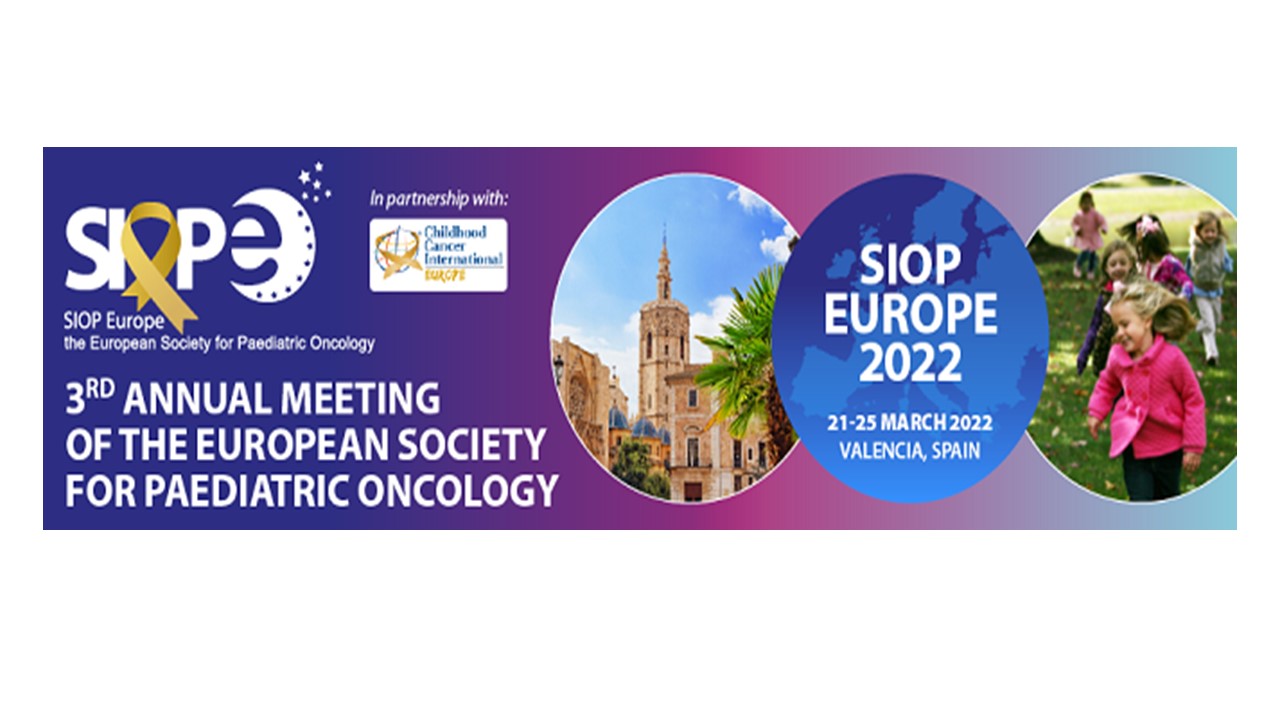
2021 10 04 TREL PROJECT news: TREL Workshops for training of early stage researches in research methodology
Contacts:
Coordinator Local Team
Project coordinators dr. Jelena Rascon jelena.rascon@santa.lt
Project manager Renata Blackutė renata.blackute@santa.lt
Coordinator assistant Alma Čerkauskienė alma.cerkauskiene@santa.lt

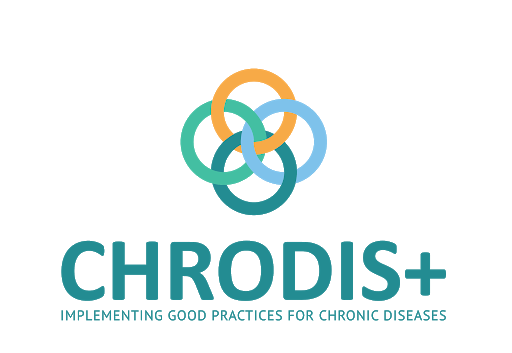

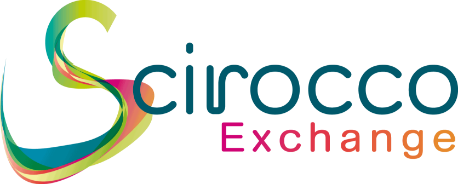

Morbidity of the bladder, kidney, cervical, uterine body, upper urinary tract urothelial, ovary, prostate and colon cancer cases represent a major proportion of all cancer cases in Lithuania and Belarus, Vilnius and Grodno regions are not an exception. Radical surgery treatment applied to the cancer patients is related with long postoperative treatment and higher risk of complications. All this leads to the worsening of the patient's quality of life both in the postoperative period and later, experienced social exclusion and long-term patient's disability related to the higher risk of poverty.
Seeking to improve the quality of life of cancer patients’ who are certainly identified as vulnerable group it is appropriate to increase the access to the minimally invasive surgery services. Application of these services leads to shorter hospitalization, lower probability of postoperative complications, and faster return to the normal activities.
The purpose of the project: to establish and strengthen cooperation between Lithuania and Belarus, to exchange experiences in order to reduce social exclusion and improve the quality of life of cancer patients in Vilnius and Grodno regions, to increase access to minimally invasive surgery services in urology, abdominal surgery, and gynecology fields.
Coordinator: Vilniaus universiteto ligonine Santaros klinikos.
Project partner: Grodno University Clinic.

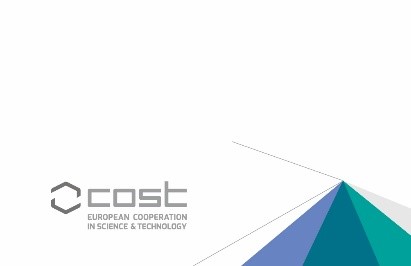


The project supports public health policies and programmes of Georgia in the field of communicable diseases and blood transfusion. It upgrades national blood safety legislation and assesses blood banks. It is a Twinning of Lithuanian, Dutch and Georgian partners, where European colleagues help Georgian counterparts with strengthening national capacities and assisting in carrying out reorganization of blood transfusion service, establishing laboratories, establishing quality systems for blood establishments.
The purpose of the project: upgrade national blood safety legislation and strengthen national institutional capacities in accordance with European regulations and the Association Agreement, to provide equal safety standards of blood components across the nation, assure safety of blood related services and prevent the spread of blood borne infections by blood transfusion.
Coordinator: Vilnius University Hospital Santaros Klinikos.
Partners: Central Project Management Agency; National Blood Centre of Lithuania; National Public Health Surveillance Laboratory of Lithuania; The Hospital of Lithuanian University of Health Sciences Kauno klinikos; Vilnius University Hospital Santaros klinikos; Centre for Communicable Diseases and AIDS of Lithuania; Sanquin Blood Supply (Sanquin) of the Netherlands.
For more information, please follow the link: https://eu4georgia.ge/strengthening-blood-safety-system-in-georgia/
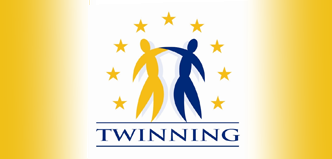
Research shows that a significant number of children in Lithuania experience numerous potentially traumatizing events, including emotional, physical, or sexual abuse or neglect. These events place children at risk of developing dangerous mental health problems such as depression, post-traumatic stress disorder, anxiety, drug dependency, and behavioral problems. The establishment of timely evaluation and accessible treatments can therefore have significant benefits for children, families, and communities at large.
Project No. LT03-2-SADM-K01-045
Project financed: 2014-2021 European Economic Area (EEA) financial mechanisms program „Health“ More information about the financial mechanisms of the European Economic Area at www.norwaygrants.lt.
Project value: 248 455,32 Eur
End of the project: 2024 03 31
Project administrator: VšĮ „Smart Health DIH"
Project partners: Vilnius University Hospital Santaros Klinikos Child Development Center, Department of Child Psychiatry, Management and Psychology Institute
Vilnius University Hospital Santaros Klinikos Project Manager: Jurgita Radzevičienė
Project purpose: in Lithuania to validate the methodology of assessing the traumatic experience of children aged 10-17 and trauma-focused cognitive-behavioral therapy (TF-CBT) for parents/caregivers and children, to create and test its digital solution.
The project is financed by 2014-2021 European economic area financial mechanism programme „Health“. Funding amount 223,609.79 Eur, applicant and partners own contribution 24,845.53 Eur, total project budget 248,455.32 Eur.
More information about financial mechanism of European economic area www.norwaygrants.lt.
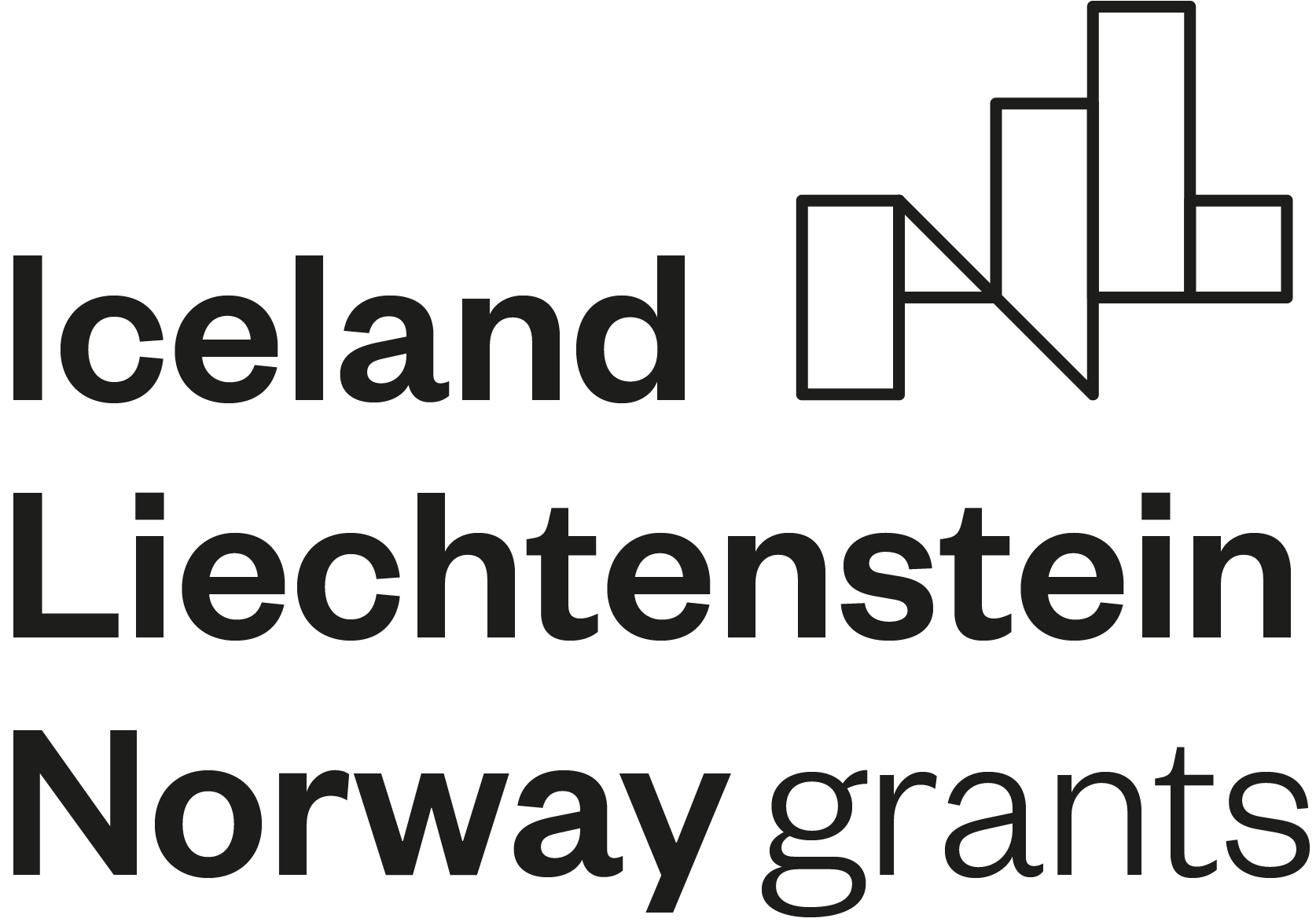
NEWS
2024-04-16 Closing conference "Possibilities of helping children overcome traumatic experiences with the help of TF-CBT intervention" was held. 120 participants (including lecturers) participated in the conference.
2024 -03-31 Project activities were completed. During the implementation of the project, various methodologies for assessing children's traumatic experience and related symptoms (for example, post-traumatic stress, dissociation, depression) were validated, and the effectiveness of trauma-focused cognitive behavioral therapy (TF-CBT) were tested clinicaly. The results confirmed that the methods can be used in Lithuania, and TF-CBT significantly reduces post-traumatic stress symptoms and post-traumatic cognitions.
2024 – 03-28 the trainings of the project "Implementation of Children's Traumatic Experience Assessment and Intervention (TF-CBT) Methodologies in Lithuania" took place, 154 participants, specialists (social workers, psychologists, pedagogues, etc.) working with traumatized children and their families, of whom 141 passed test and received certificates.
2024-03-04 Publication „(Un)Recognized Trauma: Children’s Traumatic Experiences, Dissociative Symptoms, Moods, Post-Traumatic Stress, and Cognitions in Clinical and Non-Clinical Samples“submitted to journal „Children“. The findings revealed associations between potentially traumatic events and dissociation symptoms, PTSD, depressive moods and feelings, and post-traumatic cognitions in both clinical and non-clinical samples.
2023-11-01 Data collection of a comparative sample is started in Vilnius county, with the aim of adapting tools for assessing children's traumatic experience and its consequences in Lithuania.
2023-09-01 Data collection of a clinical samples started in the Children's Psychiatry Department of Santaros Klinikos.
2023-04-01 – 2023-07-01 Digital tool testing and improvement for the Children's Traumatic Experience Assessment and Intervention (TF-CBT) methodologies.
2023-05-02 Vilnius Regional Research Ethics Committees granted permission (No. 2023/4-1499-963.) to start a biomedical study „Digitalization and Adaptation of TF-CBT (Trauma-Oriented Cognitive Behavior Therapy) for Adolescents in Lithuania“.
2022-12-11 Introductory conference of the project "Implementation of Children's Traumatic Experience Assessment and Intervention (TF-CBTt) methodologies in Lithuania" was held.
2022-09-08 Cooperation agreement with the administration of Vilnius City Municipality was signed
2022-06-23 Cooperation agreement with Vilnius City Social Service Centre was signed.
2022-06-07 A contract was signed with a UAB "PROIT", digital solution supplier for the assessment of children's traumatic experiences.
2022-04-21 Cooperation agreement with Kaunas District Social Service Centre signed.
NARRATIVE – Natural history, quality of life and patient-reported outcomes in vascular anomalies
This project has received funding from Research Council of Lithuanian (GA No. S-EJP RD-24-1) partner of the EJP RD. The EJP RD initiative has received funding from the European Union's Horizon 2020 research and innovation programme under grant agreement N°825575.
2. Define natural history and risk of progression within well-defined genotypic/phenotypic subgroups of patients within VA.
3. Apply OVAMA scales and other patient-reported outcomes in a large cohort of patients with well-defined genotypes/phenotypes and in different age groups using a user-friendly app to facilitate responses. .
4. Compile side effects and changes in quality of life following standard-of-care treatment.
5. Disseminate results and ensure open access to research results.
Project No. 101057673
Project Value: EUR 4 352 522.00 total budget, EUR 40 118 - is VUH Santaros klinikos project budget
Responsible Department at VUH Santaraos Klinikos: Vascular Reconstructive and Endovascular Surgery Center
Project Manager: Tomas Baltrūnas
Project Purpose - to develop a smart biomimetic arteriovenous graft for telemonitoring of home dialysis. Innovative device TeleGraft will be composed of two diagnostic parts to monitor and prevent dialysis complications. Pressure transmitters will be used to monitor blood flow and optical sensors to detect inflammation and infections. The data will be processed by AI machine learning models and displayed in an easy-to-understand dashboard for healthcare professionals. The data will allow online telemonitoring as well as consultations by remote healthcare professionals. This innovation will make home dialysis safe for patients, even in areas with poor infrastructure, where patients live far from hemodialysis clinics.
The TeleGraft system will be demonstrated in an operational environment through a 2-stage randomized clinical trial enrolling 60 patients at 5 hospitals across Europe (in Denmark, Sweden, Lithuania, Spain, and Germany) and through a home hemodialysis field study.
Project Co-ordinator: SYDDANSK UNIVERSITET (SDU), Denmark
Project Partners:
VERIGRAFT AB (VERI), Sweden
BIOMODICS APS (BM), Denmark
LEIBNIZ-INSTITUT FUER PHOTONISCHE TECHNOLOGIEN E.V. (IPHT), Germany
REGION SYDDANMARK (OUH), Denmark
BMD SOFTWARE LDA (BMD), Portugal
PI VILNIAUS UNIVERSITETO LIGONINE SANTAROS KLINIKOS (VULSK), Lithuania
KLINIKUM RECHTS DER ISAR DER TECHNISCHEN UNIVERSITAT MUNCHEN (TUM-MED), Germany
Servicio Vasco de Salud Osakidetza (OSA), Spain
ASOCIACION INSTITUTO DE INVESTIGACION SANITARIA BIOBIZKAIA, Spain
REGION STOCKHOLM (KUH), Sweden
ASTON UNIVERSITY, Great Britain
THE UNIVERSITY OF BIRMINGHAM, Great Britain
Project Start – 1 September 2022
Project End – 28 February 2027
EUCARE - European Cohorts of Patients and Schools to Advance Response to Epidemics
Project No. 101046016
Program: Horizon Europe Framework Programme (HORIZON) Call COVID19 - HERA Incubator (HORIZON-HLTH-2021-CORONA-01)
Project Value: EUR 9 995 921 total budget, EUR 324 375 - is VUH Santaros klinikos project budget
Responsible Department at VUH Santaraos Klinikos: Hematology, Oncology and Transfusion Center
Project Manager: Daniel Naumovas
Project Purpose – to provide robust, data-driven evidence in the fight against SARS-CoV-2 strains and the COVID-19 epidemic, supported by immunological and virological studies and artificial intelligence components, focusing on hospital patients, vaccinated healthcare workers and school groups.
Project Co-ordinator: EURESIST NETWORK GEIE – EuResist (Italy)
Project Partners:
KLINIKUM DER UNIVERSITAET ZU KOELN (UHC), Germany
UNIVERSITY COLLEGE LONDON (UCL), United Kingdom
EBERHARD KARLS UNIVERSITAET TUEBINGEN (EKUT), Germany
UNIVERSITA DEGLI STUDI DI ROMA TOR VERGATA (UNITOV), Italy
KAROLINSKA INSTITUTET (KI), Sweden
UNIVERSITA DEGLI STUDI DI SIENA (UNISI), Italy
IBM ISRAEL - SCIENCE AND TECHNOLOGY LTD (IBM ISRAEL), Israel
AZIENDA SOCIO-SANITARIA TERRITORIALE (ASST) SANTI PAOLO E CARLO (ASST), Italy
ISTITUTO NAZIONALE PER LE MALATTIE INFETTIVE LAZZARO SPALLANZANI ISTITUTO DI RICOVERO E CURA A CARATTERE SCIENTIFICO (INMI), Italy
PI VILNIAUS UNIVERSITETO LIGONINE SANTAROS KLINIKOS (VULSK), Lithuania
ISTITUTO EUROPEO DI ONCOLOGIA SRL (IEO), Italy
UNIVERSIDADE NOVA DE LISBOA (UNL), Portugal
IMPERIAL COLLEGE OF SCIENCE TECHNOLOGY AND MEDICINE (Imperial), United Kingdom
INFECTIOUS DISEASES, AIDS AND CLINICAL IMMUNOLOGY RESEARCH CENTER (IDACIRC), Georgia
HEINRICH-HEINE-UNIVERSITAET DUESSELDORF (HHU), Germany
CENTRO HOSPITALAR DE LISBOA OCIDENTAL EPE (CHLO), Portugal,
ORGANIZING BUREAU OF EUROPEAN SCHOOL STUDENT UNIONS (OBESSU), Belgium
Project Start – 14 October 2021
Project End – 14 October 2026
CHIP-AML22 Improved diagnostics and survival for all children with Acute Myeloid Leukemia treated within the NOPHO-DB-SHIP consortium; a cross-European collaboration
Project No. 101079988
Program: EU4Health Programme (EU4H), Call: EU4H-2021-PJ2, Topic: EU4H-2021-PJ-15
Project Value: EUR 2 993 152.73 (financed 80% of the overall budget 2 394 522.13) total budget, EUR 69 800.38 (55 840.30) Eur - is VUH Santaros klinikos project budget,
Responsible Department at VUH Santaraos Klinikos: Center for Pediatric Oncohematology, Pediatric Bone Marrow Transplantation Subsection
Project Manager: Ramunė Pasaulienė
Project Purpose – to find the targeted therapies for paediatric acute myeloid leukaemia (AML) patients.
CHIP-AML22 consortium aims to focus on three key areas:
- Genetic profiling of leukemic cells to identify subgroups of patients with prognostic indicators, which can help improve risk-group stratification across the consortium.
- Introducing tailored treatments based on gene activity information garnered from next-generation sequencing and transcriptome analysis of leukemic cells.
- Implementing and evaluating advanced treatment-response evaluations to further improve treatment outcomes.
In implementing these focus areas, the project aims to improve overall outcomes for all children with AML treated within the NOPHO-DB-SHIP (Nordic-Dutch-Belgian-Spain-Hong-Kong-Israel-Portugal) consortium. Its findings can provide valuable insights for a broader cohort of patients, including those with adult AML.
Project Co-ordinator: SKÅNES UNIVERSITY HOSPITAL (Sweden)
Project Partners:
SIHTASUTUS TALLINNA LASTEHAIGL (Estonia)
BERNU KLINISKA UNIVERSITATES SLIMNICA VALSTS SIA (Latvia)
VIESOJI ISTAIGA VILNIAUS UNIVERSITETO LIGONINE SANTAROS KLINIKOS (Lithuania)
OSLO UNIVERSITETSSYKEHUS HF (Norway)
FUNDACION PARA LA INVESTIGACION DEL HOSPITAL UNIVERSITARIO LA FE DE LA COMUNIDAD VALENCIANA (Spain)
PRINSES MAXIMA CENTRUM VOOR KINDERONCOLOGIE BV (Netherlands)
AARHUS UNIVERSITETSHOSPITAL (Denmark)
REGION HOVEDSTADEN (Denmark)
PIRKANMAAN SAIRAANHOITOPIIRIN KUNTAYHTYMA (Finland)
UNIVERSITEIT GENT (Belgium)
LANDSPITALI UNIVERSITY HOSPITAL (Iceland)
VÄSTRA GÖTALANDSREGIONEN (Sweden)
INSTITUTO PORTUGUES DE ONCOLOGIA DO PORTO FRANCISCO GENTIL, EPE (Portugal)
Project Start – 01 November 2022
Project End – 31 October 2025
Project No. Nr. S-MIP-24-115 / KT2024-162
Program: Research Group Projects Call XIII
This project has received funding from Research Council of Lithuanian (Finance Agreement No.S-MIP-24-115 / KT2024-162)
Project Value: EUR 199 996,79 total budget, EUR 79 656,05 - is VUH Santaros klinikos project budget
Responsible Department at VUH Santaros Klinikos: Center for Hematology, Oncology and Transfusiology, Department of Molecular Medicine
Project Manager: Raminta Batiuškaitė, Medical Geneticist
Project Purpose – to create an AI-based molecular testing method that will allow sensitive and specific identification of gene alterations in ctDNA samples, thereby improving disease diagnostics, sensitivity of MRD, and early detection of disease relapse.
Project Co-ordinator: National Cancer Institute
Project Partner: VUH Santaraos Klinikos
Project Start – 8th November, 2024
Project End – 31st August, 2027
Project No.: 101128023
Program: EU4Health European Joint Action Program on Non-Communicable Diseases, JAPreventNCD — EU4H-2022-JA-IBA
Project Value: 95 523 718,92 EUR total budget (80% - 76 409 622,62 is co-funded by EU) , VUHSK received EU support 81 367,94 EUR
Responsible Department at VUH Santaraos Klinikos: Hematology, Oncology and Transfusion Medicine Center, Oncogenetics Division
Project Manager: Dr. Ramūnas Janavičius
Project Purpose: Cancer and other Non-Communicable Diseases (C&NCD) make up more than 2/3 of the burden of disease in Europe. At the population level, substantial variations exist according to socio-economic status, geographical area, age, disability, gender, and ethnic groups. A large part of this disease burden is preventable. The aim of the JA on Cancer and other NCDs prevention to support strategies and policies designed to reduce the burden of cancer and NCDs, their common risk factors both at individual and societal level and to define methods to assess the effectiveness of prevention policies across Europe.
VUHSK participates in WP10 „Identify individuals at risk“ .The general objective of this work package is to reduce the burden of cancer and other NCDs mainly at the personal level by providing guidance and producing further evidence on integrating information from generic determinants, demographic, behavioral characteristics (individual-level-factors) into a holistic approach for c&NCDs prevention.
VUHSK participates in a pilot project whish aims to identify woomen having ovarian cancer risk at an earlier stage. The results based on genomic medicine will be proposed to integrated into the clinical practice of ovarian cancer prevention.
Project Co-ordinator: Norwegian Directorate of Health (HDIR), Norway
WP10 package leader - Sciensano ,Belgium and co-leader – RSYD, Denmark
Project Partners: 98 EU institutions from 25 countries
Project Start – 1st January, 2024
Project End – 31st December, 2027
Project Start – 1st April, 2024
Project End – 31st March 2026
